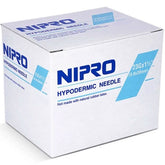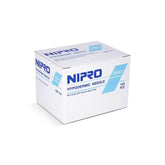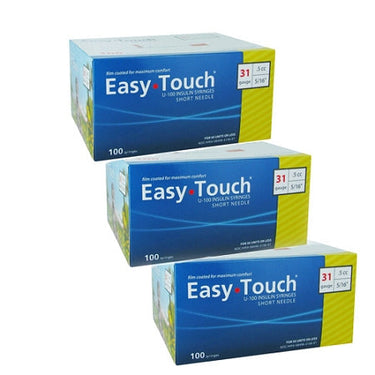Every day, millions of people worldwide use hypodermic needles for various health-related reasons, from managing chronic diseases like diabetes to administering vital medications. While these needles play a crucial role in healthcare, their disposal is often overlooked, leading to significant public health and safety risks.
The improper disposal of hypodermic needles can lead to a series of problems. For the general public and sanitation workers, incorrectly discarded needles pose a physical risk of needle-stick injuries, which can transmit infectious diseases. In the environment, they contribute to waste and pollution. Thus, understanding and implementing safe needle disposal practices is vital.
Understanding Hypodermic Needles
Hypodermic needles are hollow needles commonly used with a syringe to inject substances into the body or extract fluids from it. They're widely used in healthcare settings and at home for various treatments and care routines. Improper disposal can lead to the spread of diseases such as Hepatitis B, Hepatitis C, and HIV, which can survive in a used needle for a long time.
In a society where self-administered medical treatments are increasingly common, the issue of proper needle disposal has become more prevalent. In addition to the risk to public health, discarded needles can harm pets, wildlife, and the environment. Thus, the proper management of these small, sharp objects is a matter of significant importance.
The Legal Framework for Needle Disposal
In many jurisdictions, laws regulate the disposal of used needles to protect the public and the environment. These regulations vary by country and even by state or province. In the United States, for example, there are both federal guidelines and state laws regarding needle disposal. Penalties for improper disposal can include hefty fines and even imprisonment.
Understanding these laws is an essential first step in safe needle disposal. They typically recommend using a specific type of container for needle disposal, appropriately called a "sharps container." Most laws also specify where and how these containers should be discarded.
Step-by-Step Guide to Safe Needle Disposal
Safe needle disposal begins with obtaining the right type of container. Sharps containers are rigid, puncture-resistant containers specially designed for discarding needles, syringes, and other sharp medical instruments. They can be purchased at pharmacies, some office supply stores, and online.
Using a Sharps Container
When using a sharps container, always drop the used needle or syringe, point-first, into the container. Never attempt to push or force it in. To prevent accidents, never fill the container past the marked fill line.
Disposing of a Full Sharps Container
When the sharps container is full, it should be closed securely to prevent any accidental spillage. Many local waste facilities, hospitals, and pharmacies accept full sharps containers for disposal. It's essential to check local regulations or contact your local waste facility for information about disposal options in your area.
Alternative Methods for Needle Disposal
While a sharps container is the recommended method for needle disposal, several alternatives can be used if a sharps container is not available. One such option is mail-back programs, where used needles are mailed in a specially designed package to a collection site for proper disposal.
Another option is needle destruction devices, which mechanically break or incinerate used needles, making them safe for disposal in regular household trash. Some people also use heavy-duty household containers made of plastic for temporary storage of used needles until they can be transferred to a proper sharps container. However, it's important to note that these alternatives should not replace the use of sharps containers but rather serve as temporary solutions.
Special Considerations for Needle Disposal
Travel or emergency situations may not always allow for routine needle disposal methods. In such cases, it's essential to know how to manage needle disposal safely. For example, many public restrooms now have sharps disposal units, and travel-sized sharps containers are available for people on the go.
Similarly, caretakers and healthcare professionals who routinely handle needles should familiarize themselves with the best practices for needle disposal. They play a crucial role in reducing the risk of needle-stick injuries and the spread of infections.
Educating Others About Safe Needle Disposal
Promoting the proper disposal of hypodermic needles is everyone's responsibility. By educating others about the dangers of incorrect disposal, we can contribute to a safer and healthier community. Start by sharing this information with friends and family, particularly those who regularly use medical needles.
For healthcare professionals, patient education should include instructions on safe needle disposal. Providing patients with resources and support can encourage adherence to these vital practices.
Summary and Implications
Proper disposal of hypodermic needles is more than just a recommendation—it's a necessity for public safety and health. By following the correct disposal practices, we can protect ourselves and others from potential harm, contribute to a cleaner environment, and comply with the law.
The impacts of safe needle disposal extend beyond the individual, benefiting our communities and environment. So, let's do our part to make needle disposal safe, efficient, and effective.
References
For further reading and to understand more about needle disposal laws and best practices in your area, please visit your local health department's website or the U.S. Food and Drug Administration (FDA) website.






